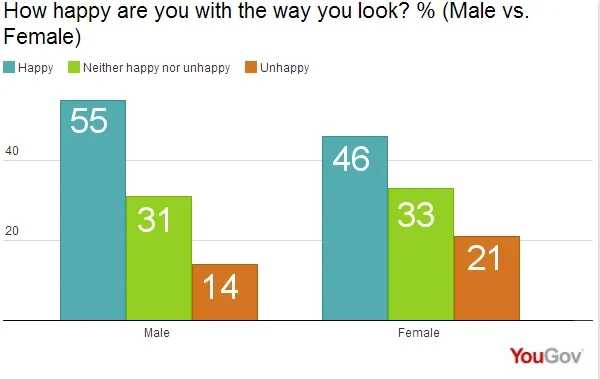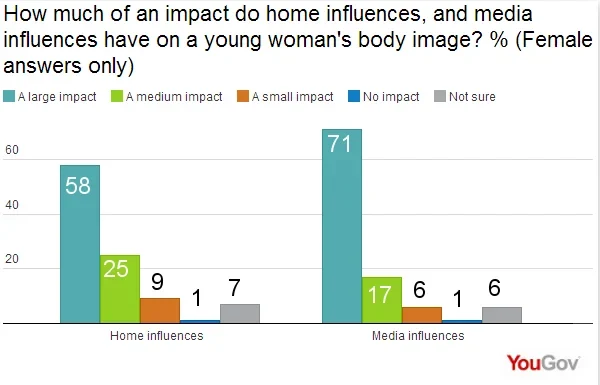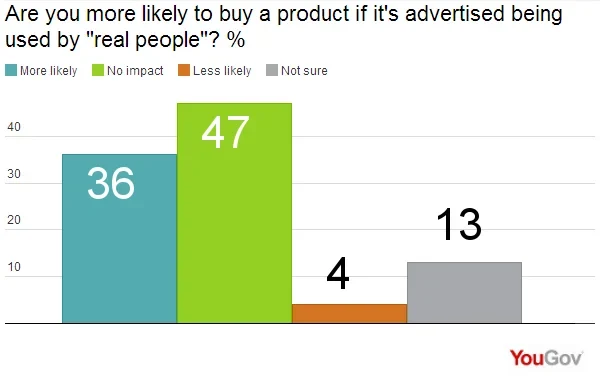American women think that the media is more influential than their family on how they feel about their bodies.
Models' weight and level of fitness are often criticised for being out of reach of the average American - something made even worse by the tendency to use computer software to make them look flawless. Some companies are tackling these criticisms, however, and recent campaigns by Dove and Star Models try to combat these body image issues by using 'real people', and increasing awareness of eating disorders.
The latest YouGov research shows that men are more likely than women to be happy with how they look. 55% of men said they were happy with the way they look, compared to 46% of women. Unsurprisingly, age is also a relevant factor as younger people are more likely to be happy with their bodies. The number of people happy with how they look decreases steadily as age increases, with the majority (59%) of 18-29 year olds being happy with their body, goes down to just 39% for people who are older than 65.

When men were asked which had a larger impact on their body image, the media and home life, they were split evenly, with 41% choosing the home and 39% choosing the media. This makes a stark contrast with women, who say that the media (71%) is more likely to have a large impact than home life (58%).

In terms of advertising campaigns featuring 'real' women and men instead of flawless models, over a third of Americans (36%) say that such campaigns would make them more likely to buy a particular product.

The US is not the only country to grapple with this issue, but some countries have actually passed laws with the aim of improving the situation. Israel recently instituted a law that stipulates a minimum body-mass index (BMI) for models to be employed.
Full poll results can be found here.
Image: Getty.








